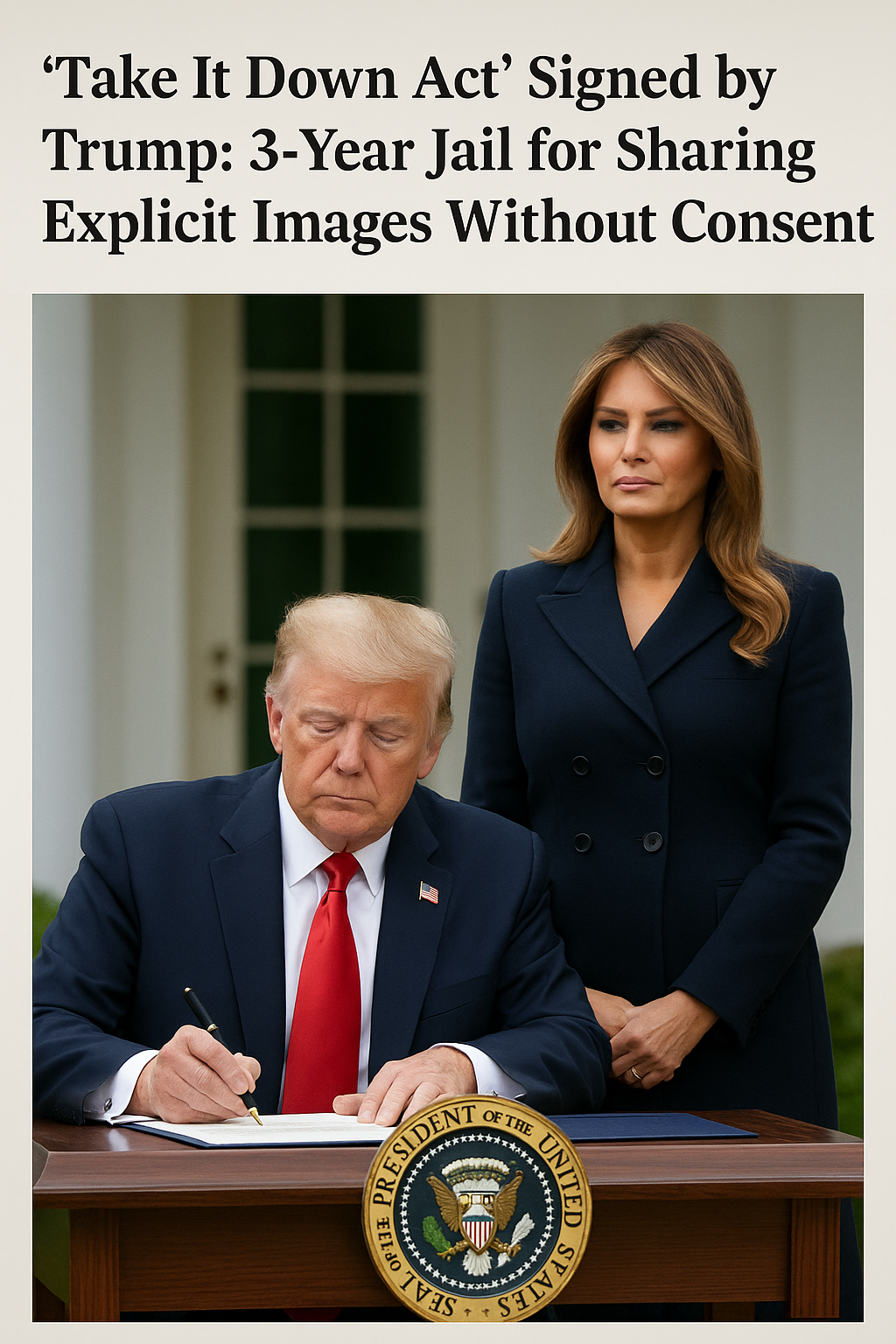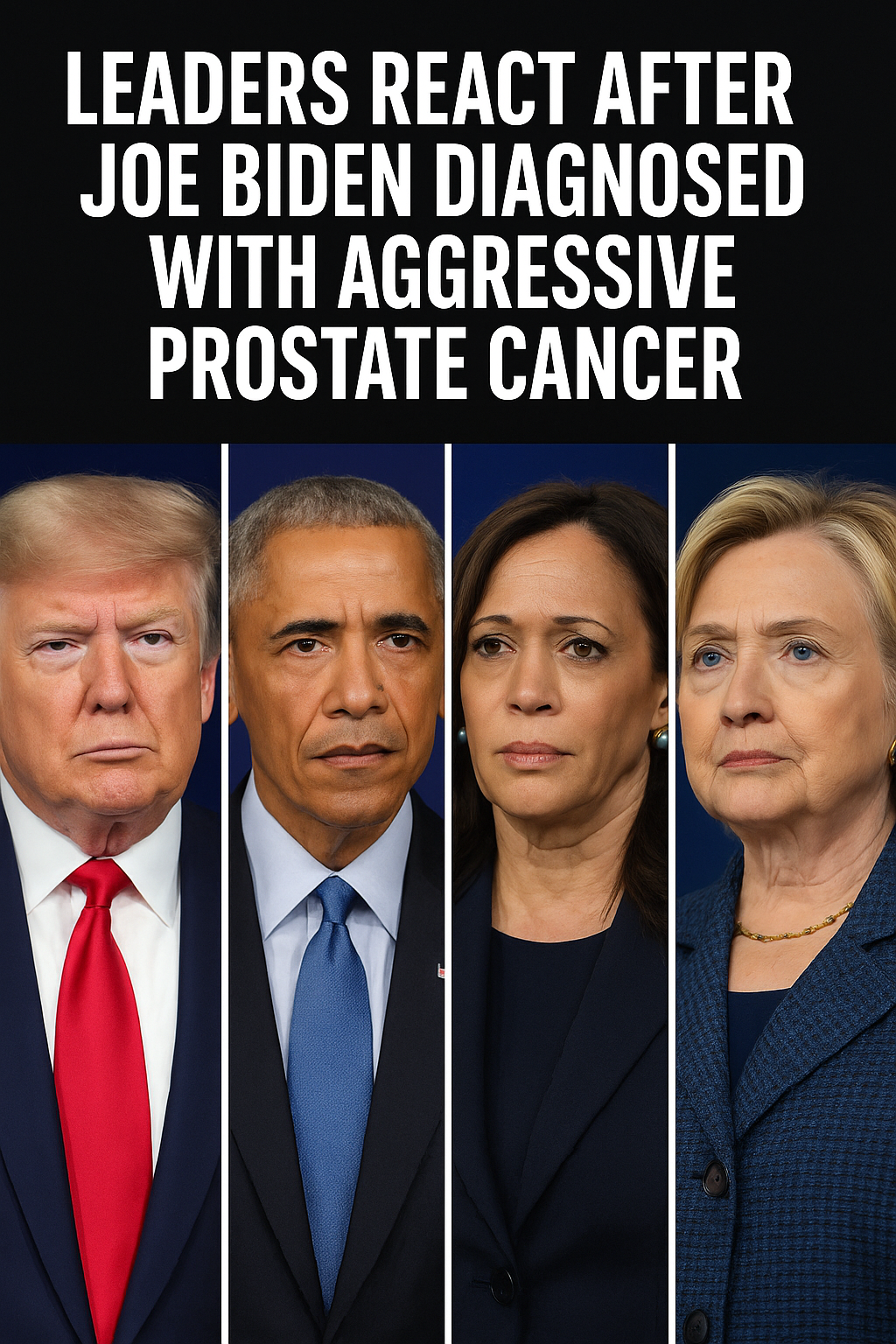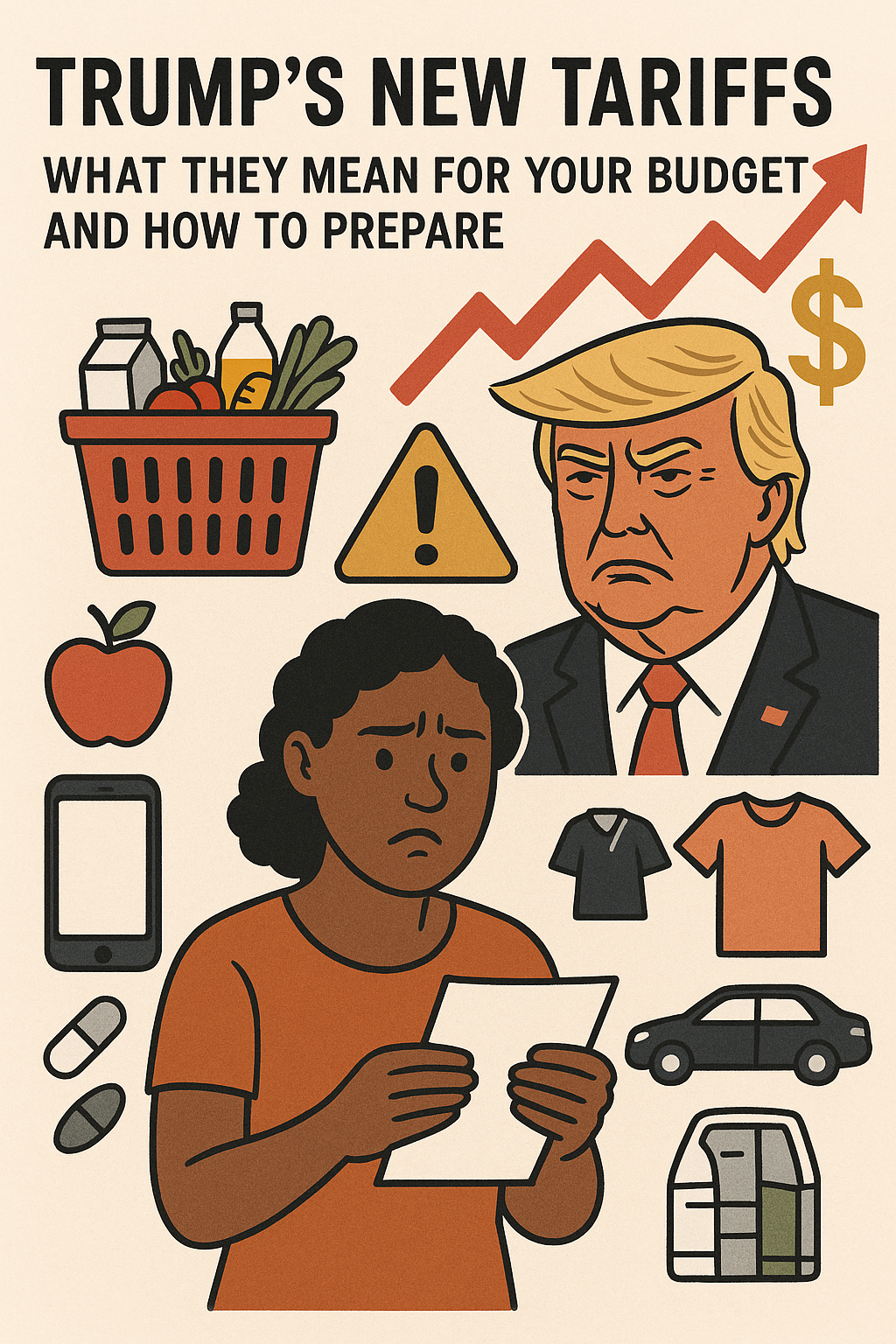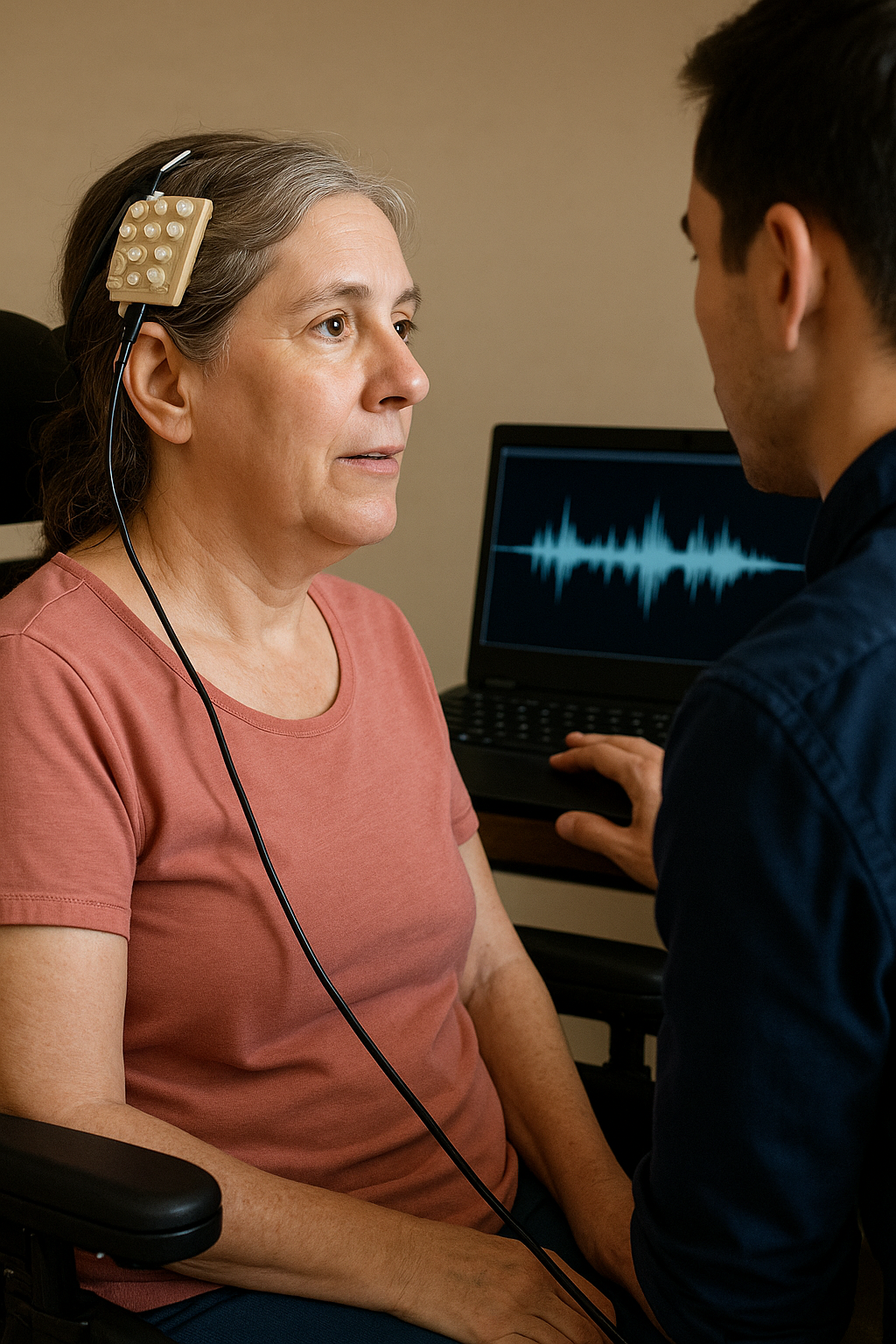In a significant step toward online safety and privacy, President Donald Trump has signed the ‘Take It Down Act’ into law, making it a federal offense to share explicit images—real or AI-generated—without the person’s consent.
First Lady Melania Trump stood in support at the White House Rose Garden on Monday while the bill was signed. The legislation directly addresses growing concerns about digital abuse, including the misuse of artificial intelligence to create non-consensual explicit content.
A Federal Stand Against Image-Based Abuse
“This is about protecting people—especially women and children—from having their lives destroyed by someone clicking ‘share’ without their permission,” President Trump said during the ceremony.
The new law makes it a federal crime to distribute intimate images without the subject’s consent knowingly. Offenders could face up to three years in prison. The law also applies to images that have been digitally manipulated or created using AI tools, a growing problem with the rise of deepfake technology.
Melania Trump: “A National Victory”
Melania Trump, who played a key role in advocating for the bill, described the law as “a national victory” that empowers families and helps protect children from digital exploitation.
“This sends a message that the online abuse of someone’s likeness, whether real or fake, will no longer be tolerated,” she said.
Responsibilities for Online Platforms
Apart from punishing suspects with criminal penalties, the law also asks tech platforms to take responsibility and prevent harm. Websites and social media services must remove such content within 48 hours of a verified request from a victim. They are also to eliminate any duplicates of the offending material.
Importantly, the act clarifies that even if someone is permitted to create an image, that does not automatically grant permission to publish or distribute it.
Bipartisan Effort Behind the Legislation
Senators Ted Cruz (R-Texas) and Amy Klobuchar (D-Minnesota) introduced the law ‘Take It Down Act’ in 2024. Shows that both major political parties actually agree on this important issue, which doesn’t always happen. The bill was met with strong support in Congress, passing with an overwhelming 409-2 vote in April.
When digital tools can be misused to manipulate or exploit, lawmakers emphasized the urgent need for legal safeguards.
A Step Toward Safer Digital Spaces
With online harassment and deepfake technology on the rise, this new federal law aims to give victims a legal path to justice and compel platforms to act more responsibly.
“This is just the beginning,” said President Trump. “We will continue working to ensure that every American feels safe and respected—both offline and online.”









